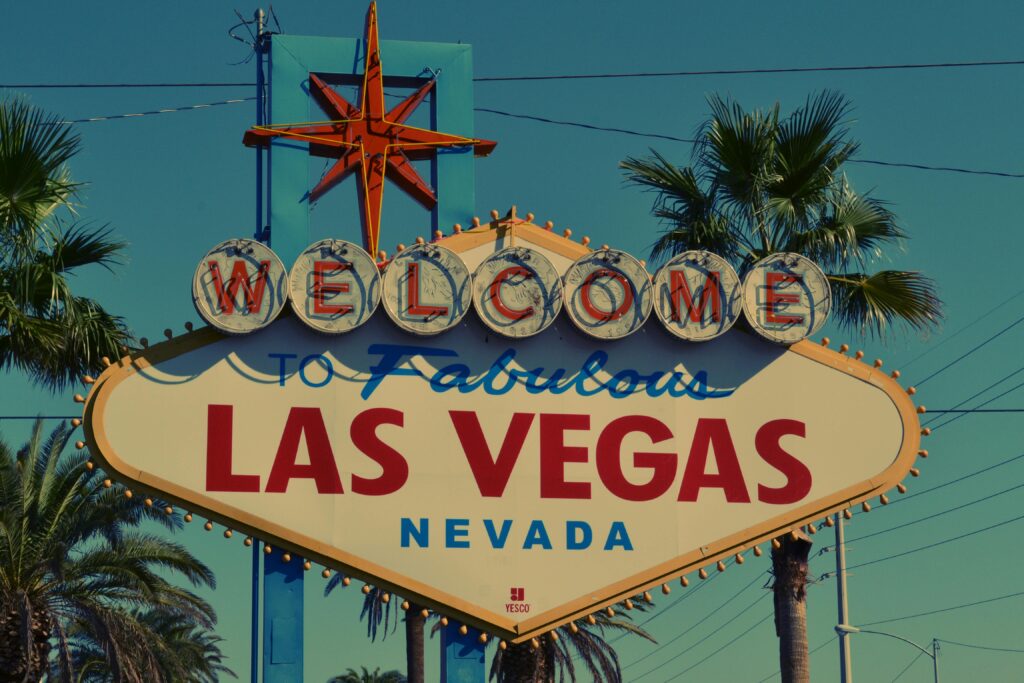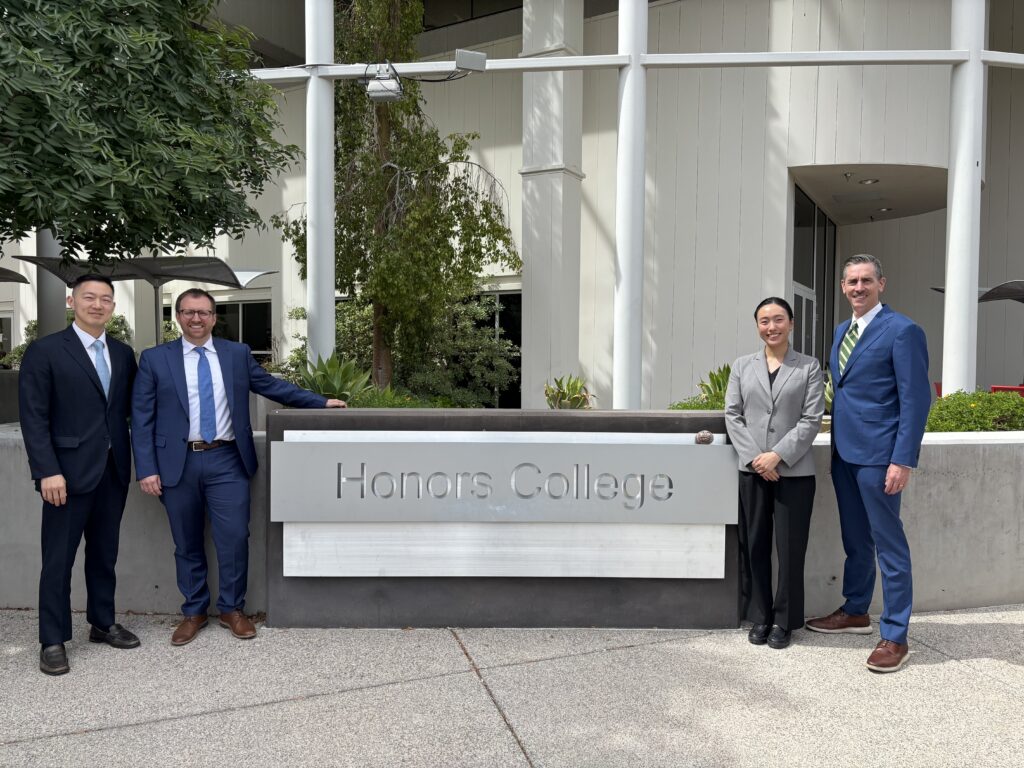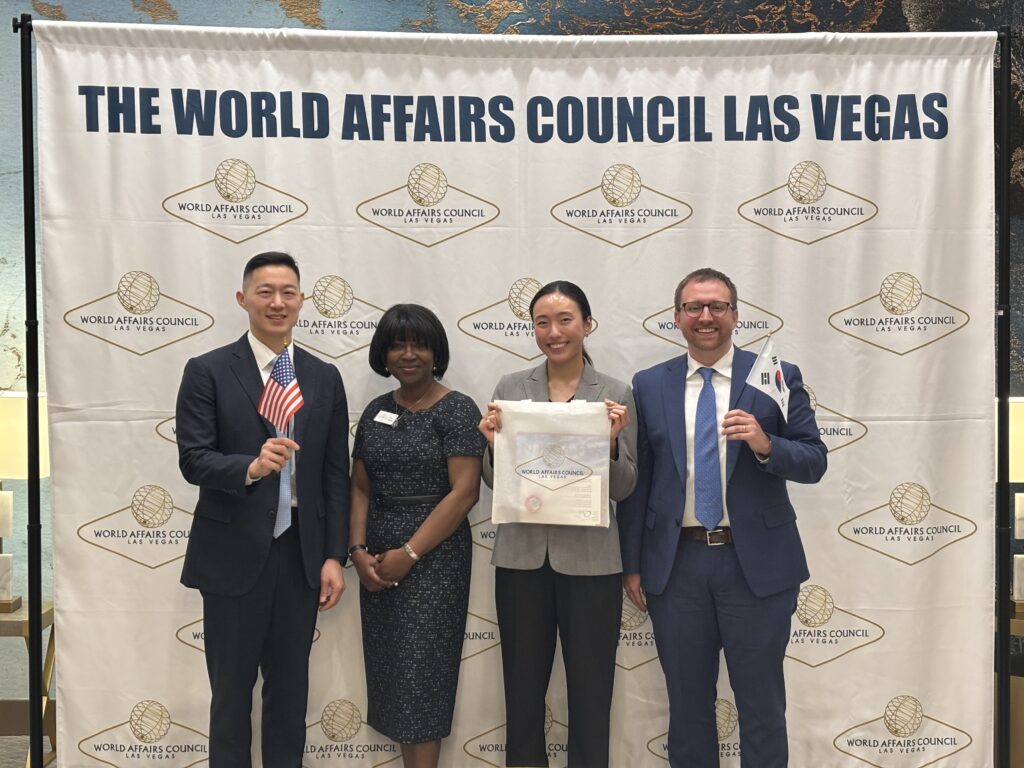The Peninsula
Future of Korea: How Las Vegas is Driving Korean American Innovation

The Korea Economic Institute of America (KEI) recently led a delegation to Las Vegas, Nevada, to gain a firsthand look at the city’s role within the U.S.-South Korea relationship and its influential network of Korean American community and business leaders. Across a range of sectors, from advanced manufacturing and clean technologies to creative industries and entertainment, the city of Las Vegas and southern Nevada more broadly offer great business incentives for Korean companies looking to expand in the United States.
The delegation, which included KEI’s Program and Internship Manager Jennifer Ahn, the U.S. Department of State’s Economic Officer for South Korea Evan Fowler, and the South Korean Embassy’s First Secretary Dukhwan Hwang, visited Las Vegas from April 15 to 17 under the Future of Korea (FOK) program, one of KEI’s longest public outreach initiatives. Hosted by the World Affairs Council of Las Vegas (WACLV), organized and led by Executive Director Vivian Palmer, the week involved outreach and collaboration with students, business leaders, and community stakeholders to discuss the bilateral U.S.-South Korea relationship, evolving political and economic dynamics, and the vibrant Korean American community in Las Vegas.
The FOK program began with a roundtable at the University of Nevada Las Vegas (UNLV) Honors College. Dr. Maria Jerinic, associate dean and associate professor in residence at the UNLV Honors College, provided opening remarks that highlighted UNLV’s partnership programs with four Korean universities (Yonsei University, Korea University, Kookmin University, and Chonnam National University) and pointed out that South Korean students are the second-largest among the UNLV foreign student population. The roundtable discussion, moderated by Associate Professor Cian T. McMahon, covered topics ranging from the U.S.-Korea relationship and U.S. foreign policy to career opportunities in the public and nonprofit sectors. Questions from student and faculty attendees included South Korea’s demographic challenges, South Korean perceptions of the United States, and emerging issues in domestic U.S. politics and foreign policy.

The delegation then participated in a public event titled “Transpacific Ties: The Future of US-Korea Relations” at the Spanish Trail Country Club, alongside business, community, and government leaders, as well as members of the Korean American Association of Las Vegas. Las Vegas Mayor Shelley Berkley provided opening remarks on the robust relationship between the United States and South Korea and the strength and growth of the Korean American community in Las Vegas. Moderated by WACLV Board Member Stacy Standley, the panelists discussed the evolving dynamics of the U.S.-South Korea alliance, the most pressing security and economic challenges facing alliance cooperation, and the future direction of the bilateral relationship.
Panelists also answered questions from the audience on combating North Korean cybercrime operations, the prospects of engagement with North Korea, and the trade relationship between the United States and South Korea, including goods, services, and tariffs.

Lastly, the FOK delegation participated in a breakfast roundtable with business and community leaders, including a representative from the Nevada Governor’s Office of Economic Development. Roundtable participants noted the changing business environment in Las Vegas, allowing for greater opportunities beyond legacy sectors such as the entertainment and mining industries. Advanced manufacturing, renewable energy, data and information, warehousing and logistics, and creative industries offer great business incentives for Korean companies looking to expand in southern Nevada. Furthermore, Nevada’s business-friendly policies, accommodating infrastructure, and steady stream of tourists further facilitate entrepreneurship and business collaboration that bolster the state’s appeal as a regional and global hub for investments.
Nevada is home to more than 22,000 Korean Americans, and participants discussed the positive impacts of this diversity on the local economy and how these individuals enhance people-to-people ties between the two countries. Las Vegas not only has a high number of Korean restaurants, cafes, and shopping centers—along with a recently opened H Mart—but also has a thirty-year history with Ansan as a sister city and daily direct flights to South Korea. In addition, a record number of Korean companies participated in CES 2025, an annual trade expo organized by the Consumer Technology Association to highlight new and innovative products, which was hosted in Las Vegas this year.
With roughly 900 Korean companies participating, of which 445 comprised the largest Korean pavilion in CES history, the expo highlighted both the leading role of Korean corporations in emerging technologies and the innovative contributions of Korean small- and medium-sized enterprises.
As trade, business, and people-to-people ties continue to expand between the United States and South Korea, residents in Las Vegas and the Korean American community in southern Nevada will serve as powerful and valuable contributors driving the bilateral relationship forward.
Jennifer Ahn is Program and Internship Manager at the Korea Economic Institute of America (KEI).
Feature image courtesy of Pexels. In-line image credits belong to the author.
KEI is registered under the FARA as an agent of the Korea Institute for International Economic Policy, a public corporation established by the government of the Republic of Korea. Additional information is available at the Department of Justice, Washington, D.C.
